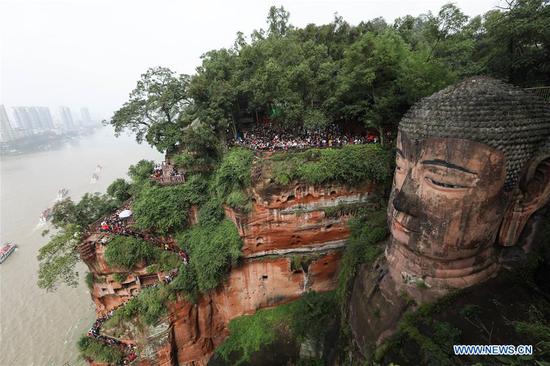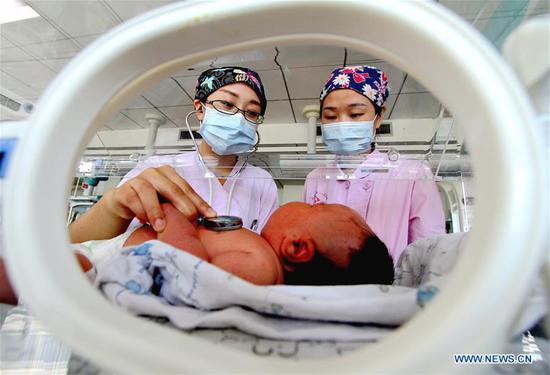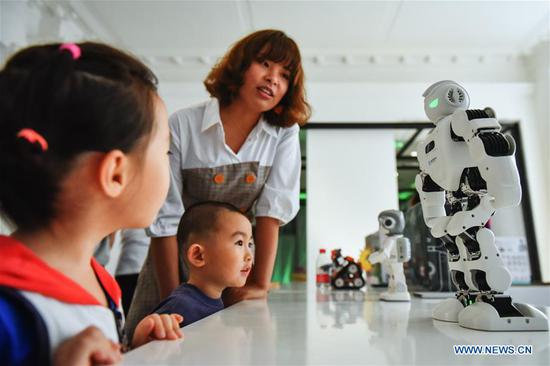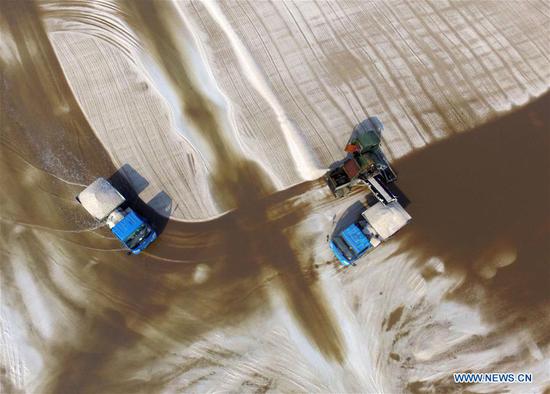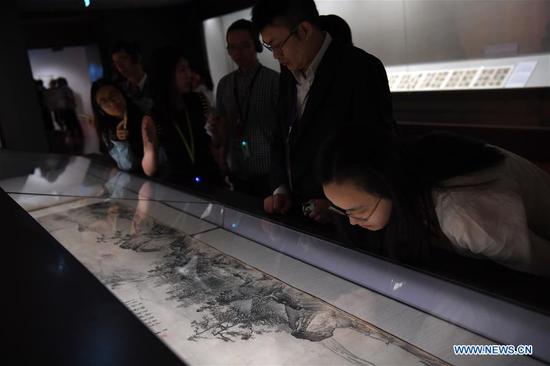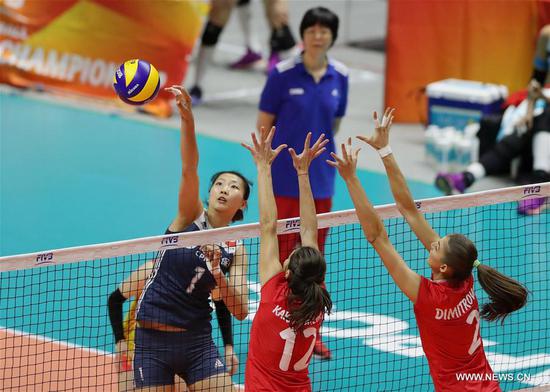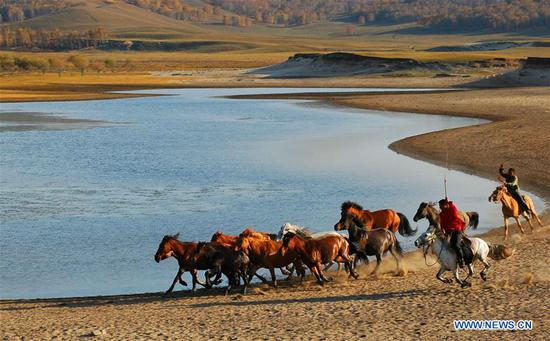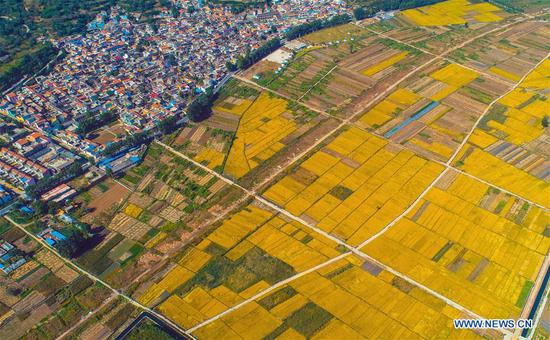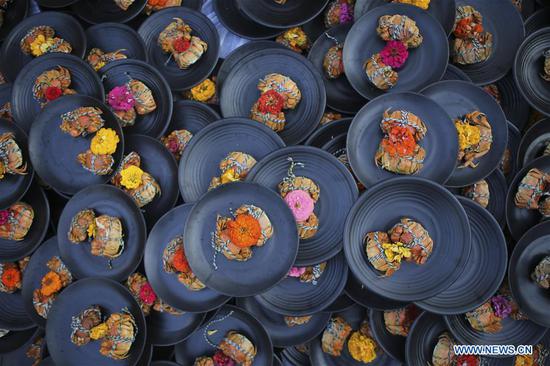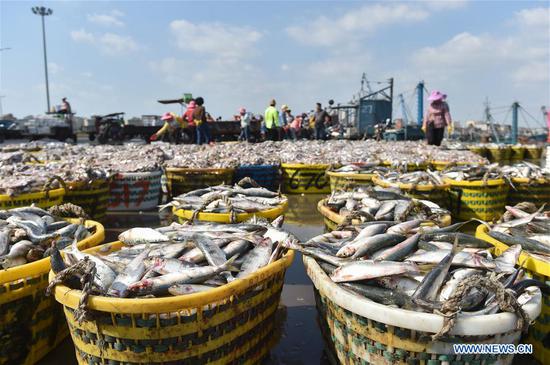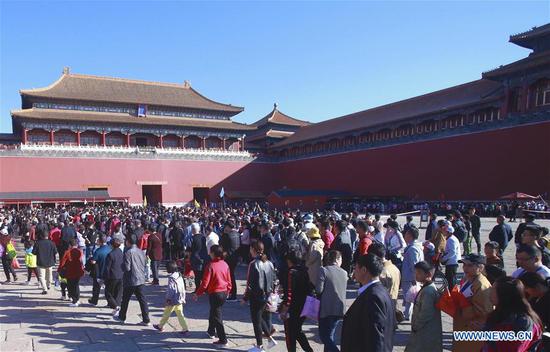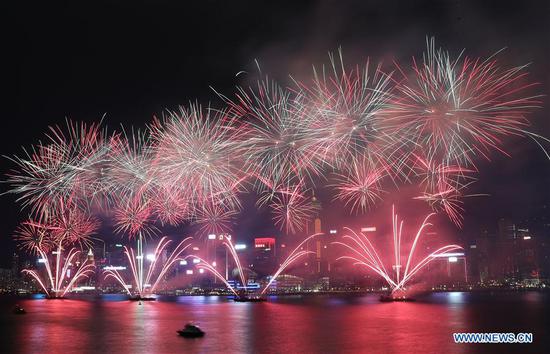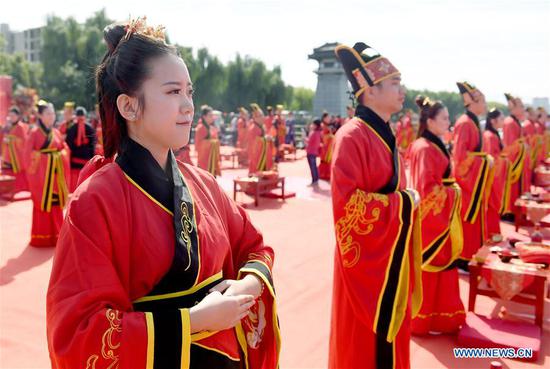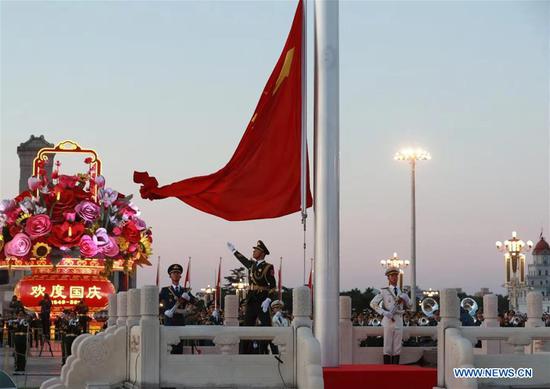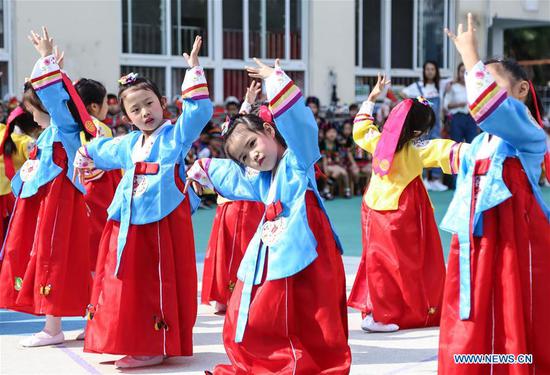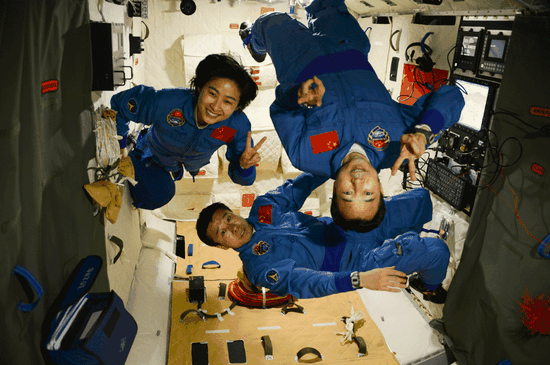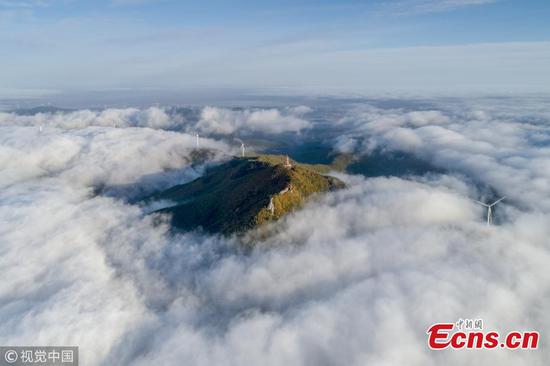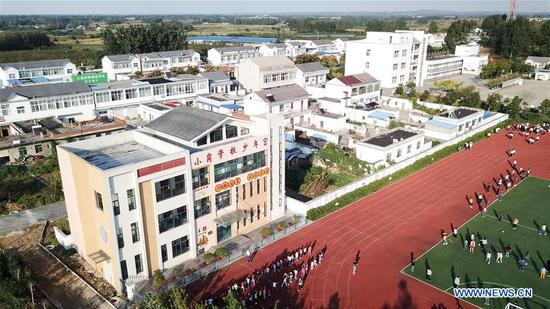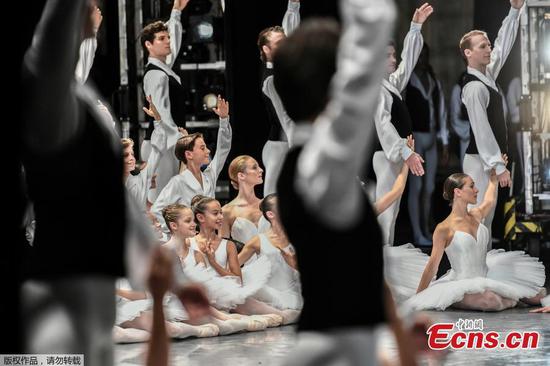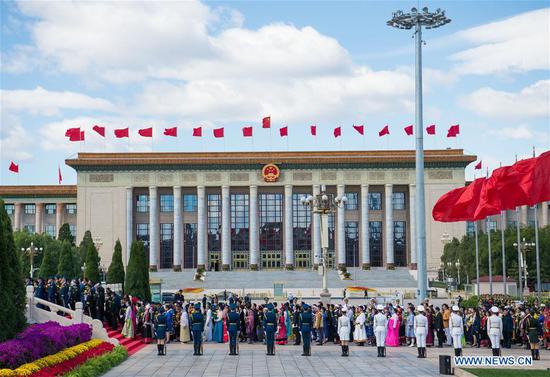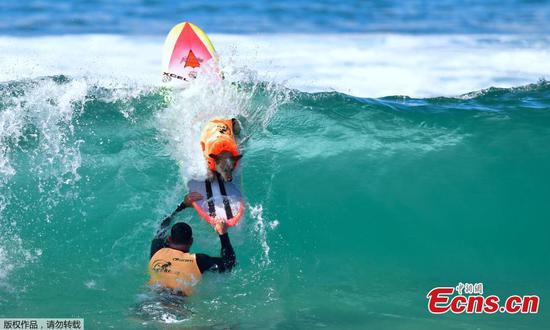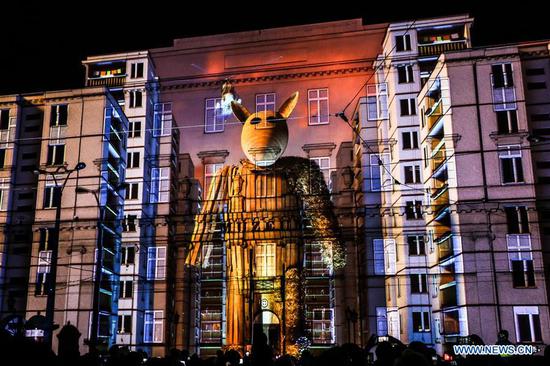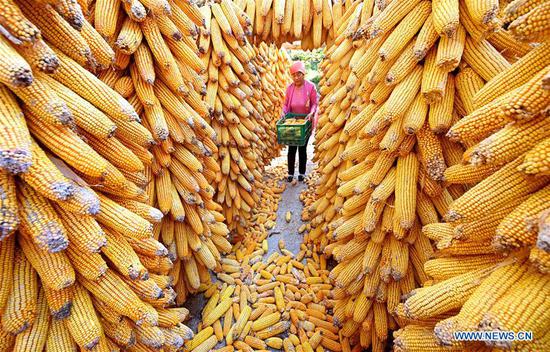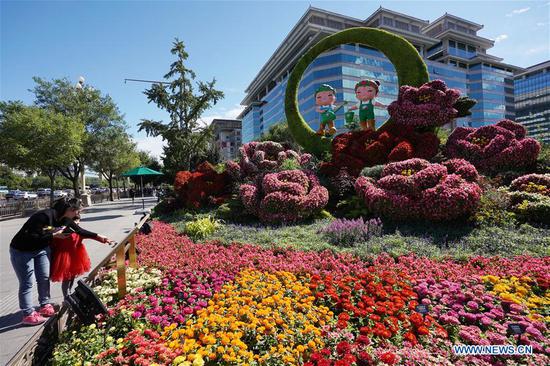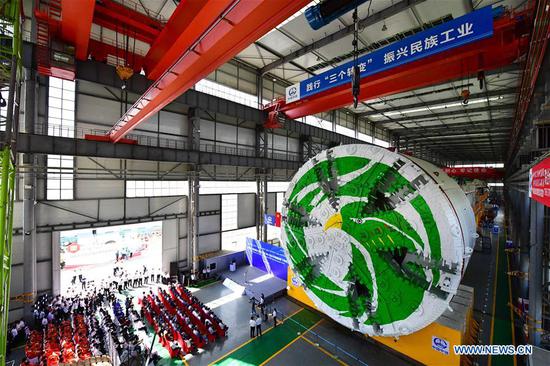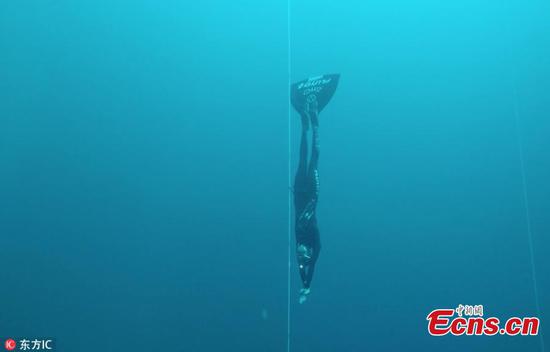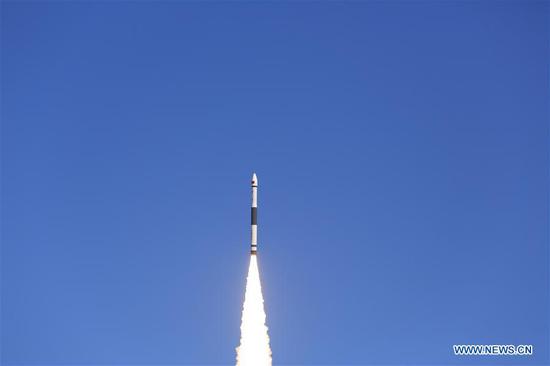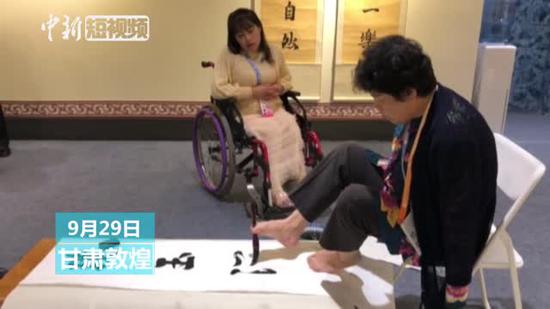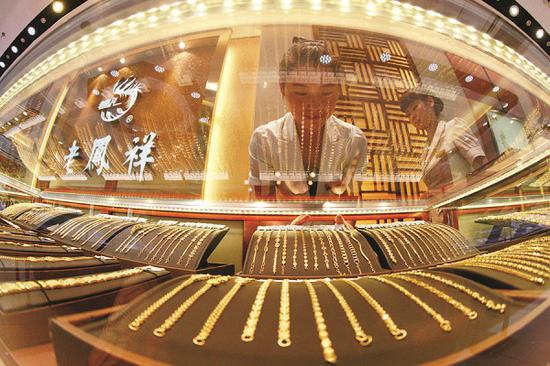
A saleswoman arranges gold jewelry at a Lao Feng Xiang store in Huaibei, Anhui province. (Photo by Xie Zhengyi/for China Daily)
As other businesses have been wiped out during China's period of vast change and unprecedented business growth, these three Shanghai-based time-honored brands have not only survived but become leaders in their fields:
Lao Feng Xiang
Founded in 1848, one year after Cartier was born in Paris, Lao Feng Xiang is not only known as one of China's oldest jewelry brands, but also as one of the most successful time-honored brands standing against the competition with its overseas peers since the 1990s.
The Shanghai-originated brand has managed to grow its sales from 710 million yuan ($103 million) in 2001 to 25.25 billion yuan in the first half of 2018, according to the company's latest financial report. In 2001, the jeweler was acquired by China First Pencil Co Ltd, another Shanghai-based company with a history dating back to the 1930s, and taken over by a new helmsman, Shi Lihua.
The former general manager of China's largest pencil manufacturer has since started a radical reform of the brand, which had been suffering low profit and stagnant revenue growth for years. Some of Shi's most effective measures included expanding the offerings from exclusively gold jewelry to a variety of types including diamonds, pearl, jade and other colored stones, and significantly removing pieces made by other jewelers from their shelves.
Shi has been quoted by Chinese media as explaining his strategy to convert Lao Feng Xiang from a "famous gold dealer" to a "popular jewelry brand".
Today, the brand has more than 2,000 outlets across the country, and a dozen stores overseas, including one on the Fifth Avenue in New York, neighboring the likes of luxury hotels and fashion boutiques.
Heng Yuan Xiang
A report released by Alibaba in 2017 has listed wool wear brand Heng Yuan Xiang as the No 1 time-honored brand among the 100 nominated brands in terms of e-commerce development. The next year it was again awarded by Alibaba as the time-honored brand that has sold its offerings to the most overseas markets in 2017-188 countries and regions in total.
But Chen Zhongwei, the company's general manager, has been quoted by Chinese media as saying that the decision to take Heng Yuan Xiang online in 2012, one of the earliest among all time-honored brands, was rather "hasty".
Started in 1927 as an wool import dealer in Shanghai, it was not until eight years later that its founder invested in a factory to produce its own wools, in order to fight against the monopoly of imported goods. In 1987, when the brand was transferred from a State-owned company to a private business, its new helmsman again removed its own production business and focused on sales and marketing by partnering with more than 100 supplying factories in neighboring cities.
Over the following two decades, it achieved robust growth by bombarding consumers across the country with its bold TV commercials. One of its memorable ads, for example, was simply to have a girly voice read the slogan "Heng Yuan Xiang, sheep, sheep, sheep" three times on China Central Television. The shoddy piece, mainly because of limited budget, cost 100,000 yuan, the total annual profit of the brand in 1991, and in return boosted the sales to 3 million yuan the next year, up by more than 50 percent.
Since 2000, however, the competition with Western fast fashion brands and more premium cashmere left it at quite a disadvantage, while the lure of TV commercials was also losing its magic. During the 2008 Beijing Olympic Games, the brand remade its 1991 TV ad piece by expanding it into reading the brand's name and all of the 12 Chinese zodiac animals.
In order to save cost and leverage the power of Alibaba, which the general manager considers as influential as CCTV in the 1990s, it called up its more than 100 distributors and encouraged them to sell online.
In 2017, its annual sales reached 5 billion yuan, with nearly 60 percent coming from online, up by 26 percent.
Double Happiness Sports
As the world's No 1 table tennis equipment brand, Double Happiness Sports has found its way to the top by "being the best" instead of "selling to the most".
"The size of table tennis market has always been as stable as the performance of Chinese table tennis players," quipped Lou Shihe, general manager of the Shanghai-originated brand, which was founded in 1959 after China won the bid to host the 26th World Championship of Ping Pong.
Henceforth, the margin to drive growth, for Lou and his team of less than 100 staff, has lied in getting the paddle ever thinner, or the ball a little larger.
In 2000, following the new rule introduced by the International Table Tennis Federation, which required all games to use the ball at a diameter of 40 milliliters instead of 38 milliliters, the brand became the first in the world to invest in R&D and massively produced the bigger-sized balls. The move has since increased the share of DHS on the global market to 70 percent.
In 2017, the brand reported 717 million yuan of sales, far ahead of the second market player, Tamasu from Japan, on the global stage, which reported annual sales at upwards of 400 million yuan.









